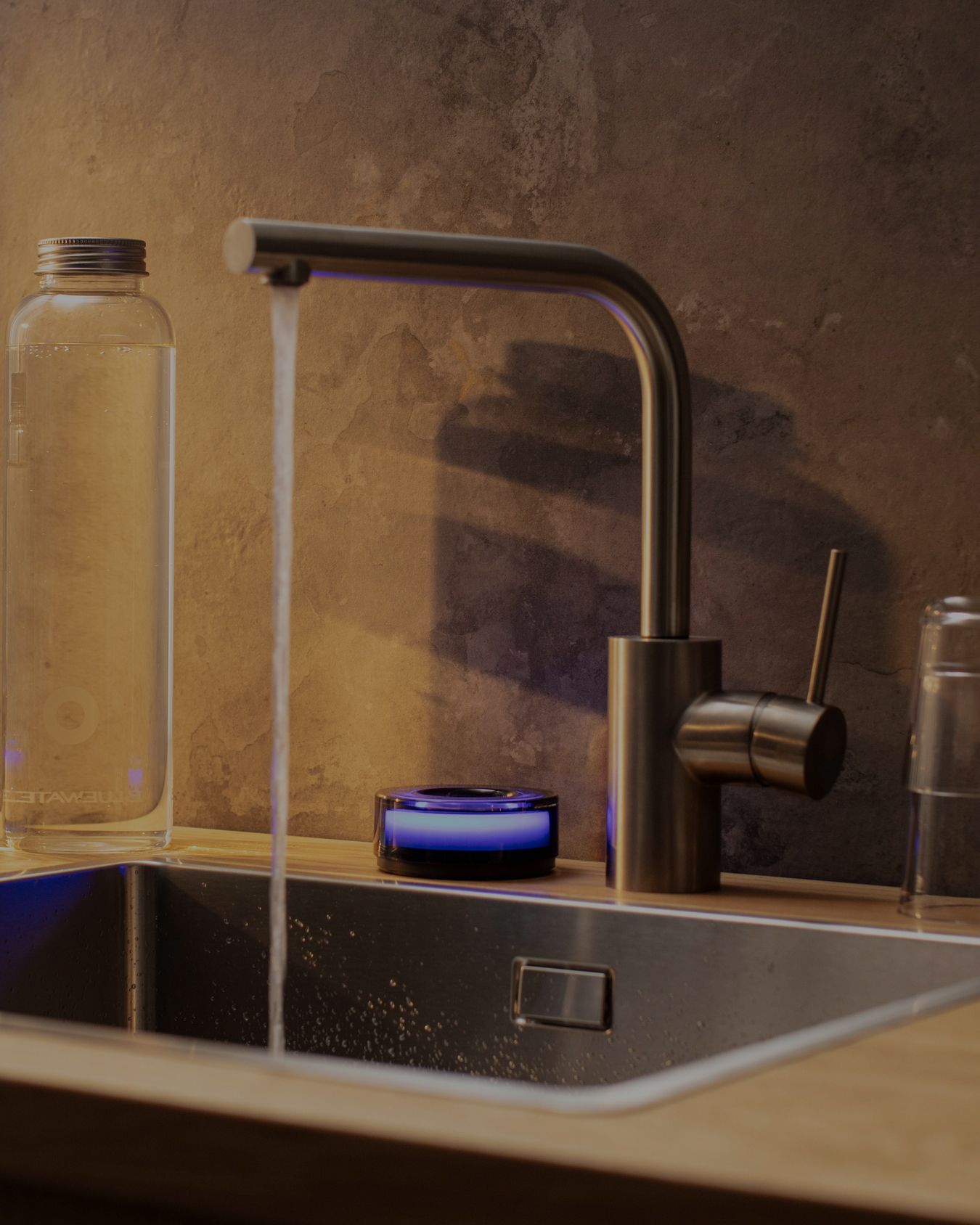What Is Distilled Water?
Last updated: November 2025
People across the UK are becoming more aware of what flows from their taps. Searches for PFAS, microplastics, hard water solutions, and at-home filtration continue to rise, and many households are exploring options beyond bottled water. Distilled water is one of the most searched terms — not because everyone wants to drink it, but because they want to understand how it fits into the wider conversation about clean, reliable water at home.
This guide explains what distilled water is, how it compares to other water types, and why many people choose modern purification systems such as the Bluewater Kitchen Station 1™ for a more practical, sustainable, everyday solution.
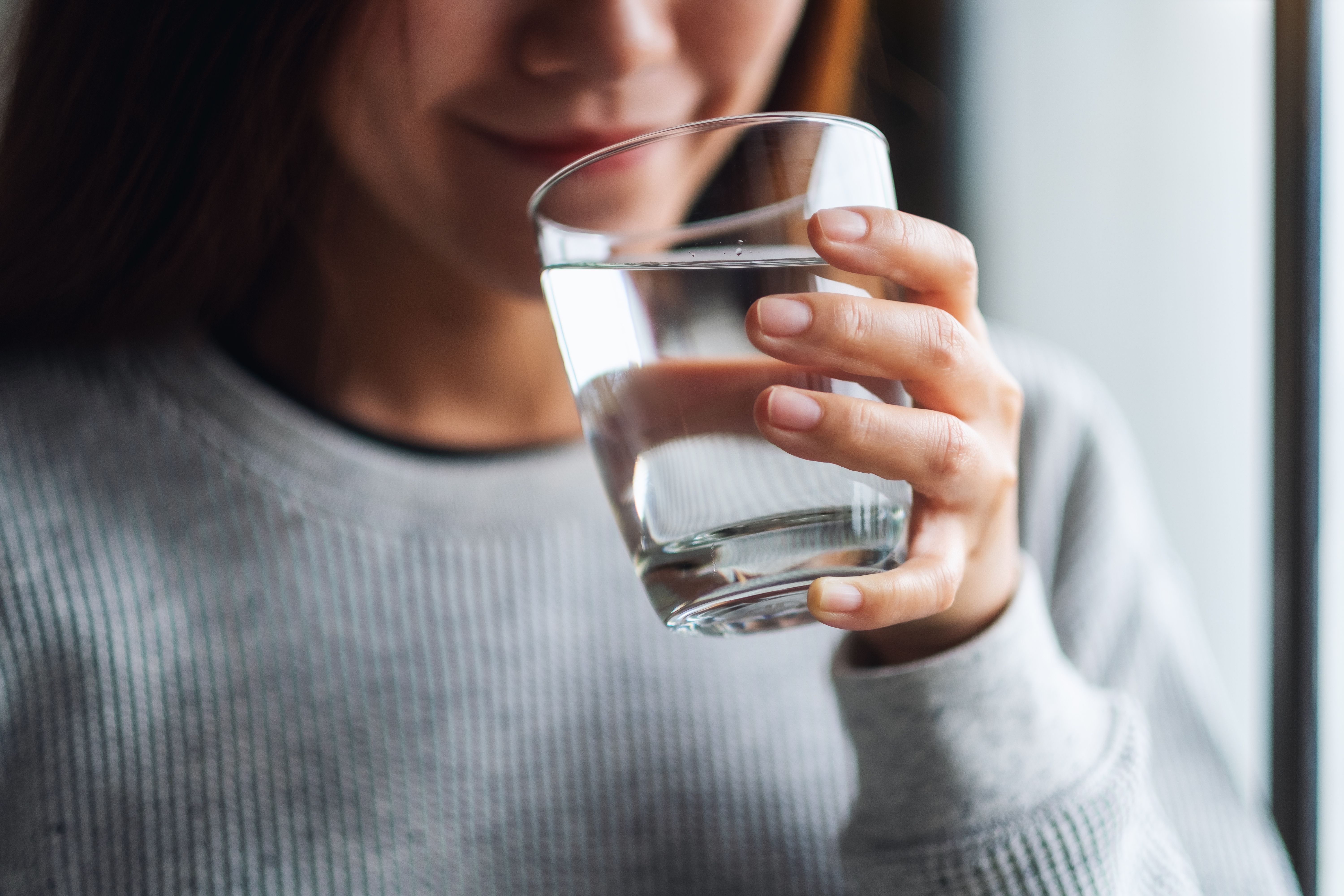
1. What Is Distilled Water?
Distilled water is created by boiling water into steam and collecting the condensation. This process leaves behind nearly all dissolved solids, minerals, and most contaminants. The result is extremely pure water with almost no total dissolved solids (TDS).
This is why distilled water is commonly used in:
- steam irons
- CPAP machines
- laboratory equipment
- appliances where mineral buildup needs to be avoided
While it is very pure, it also lacks naturally occurring minerals like calcium and magnesium, which contribute to taste and the overall drinking experience. For this reason, distilled water is rarely chosen as an everyday drinking option.
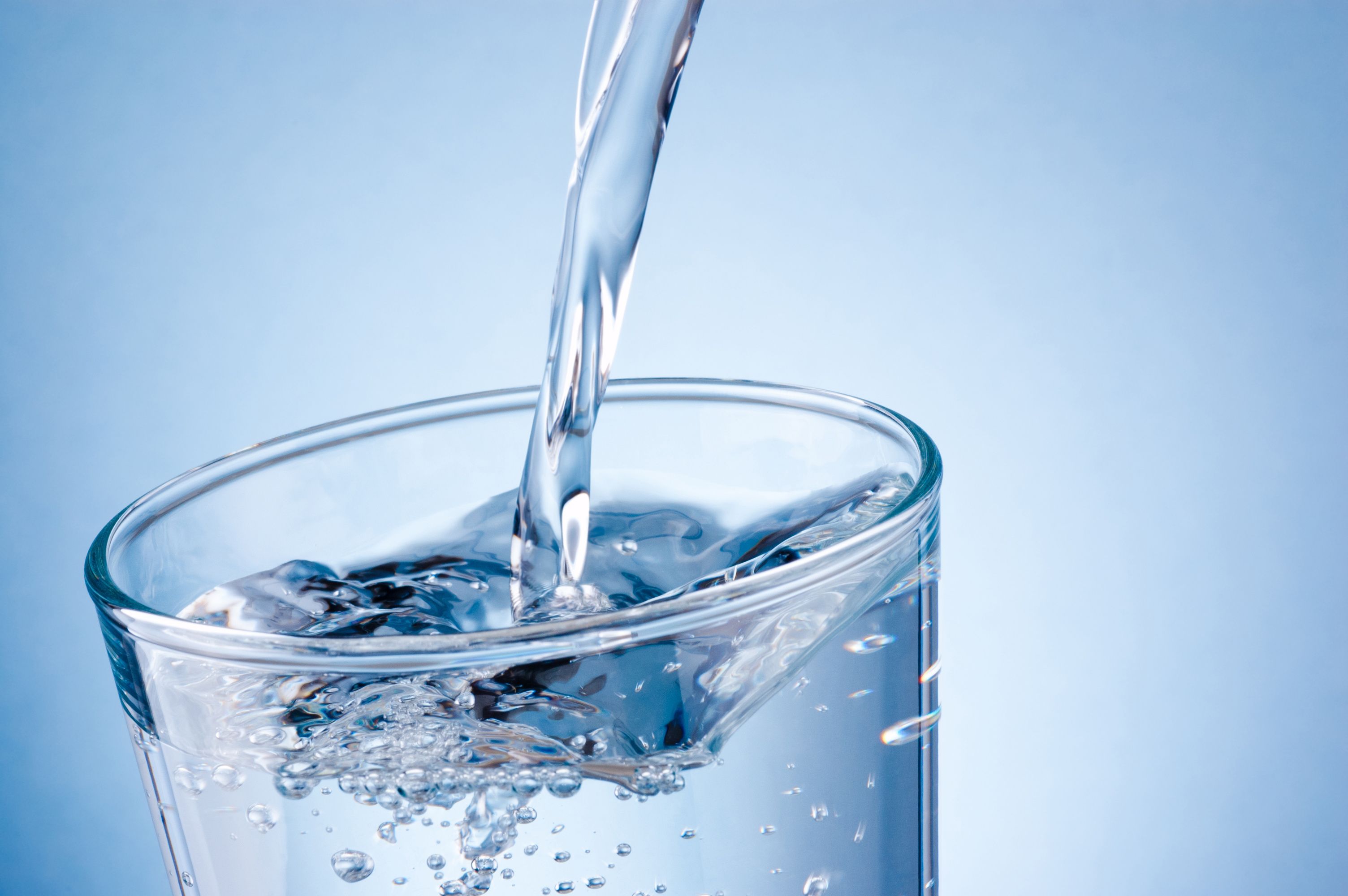
2. How Distilled Water Compares to Other Water Types
Tap Water
UK tap water is regulated and considered potable, but it can contain hardness minerals, chlorine, and trace contaminants that influence taste and household experience. This is why many households choose under-sink filtration systems.
Filtered Water
The performance of filtered water varies widely depending on the system. Basic carbon filters mainly improve taste and smell, while more advanced multi-stage systems reduce a broader range of unwanted substances.
Reverse Osmosis (RO) Water
Reverse osmosis purifies water using a highly selective membrane. It reduces a wide variety of impurities while allowing optional remineralisation for taste and balance.
This is the underlying technology inside the Bluewater Kitchen Station 1™, enhanced through its advanced SuperiorOsmosis™ system.
Mineral Water
Bottled or naturally sourced mineral water contains electrolytes that affect taste and mouthfeel. Many people enjoy this balanced profile, which is why remineralised water systems have become popular at home.
Distilled Water
Extremely pure but completely free of minerals, distilled water is ideal for equipment and specialised applications, not everyday hydration.
3. Is Distilled Water Good for Drinking?
Distilled water is safe to drink, but many people find it flat in taste because it contains no minerals. It may feel “empty” compared to natural or mineral-balanced water. For occasional use, it is fine — but it is not typically chosen as a daily drinking water source.
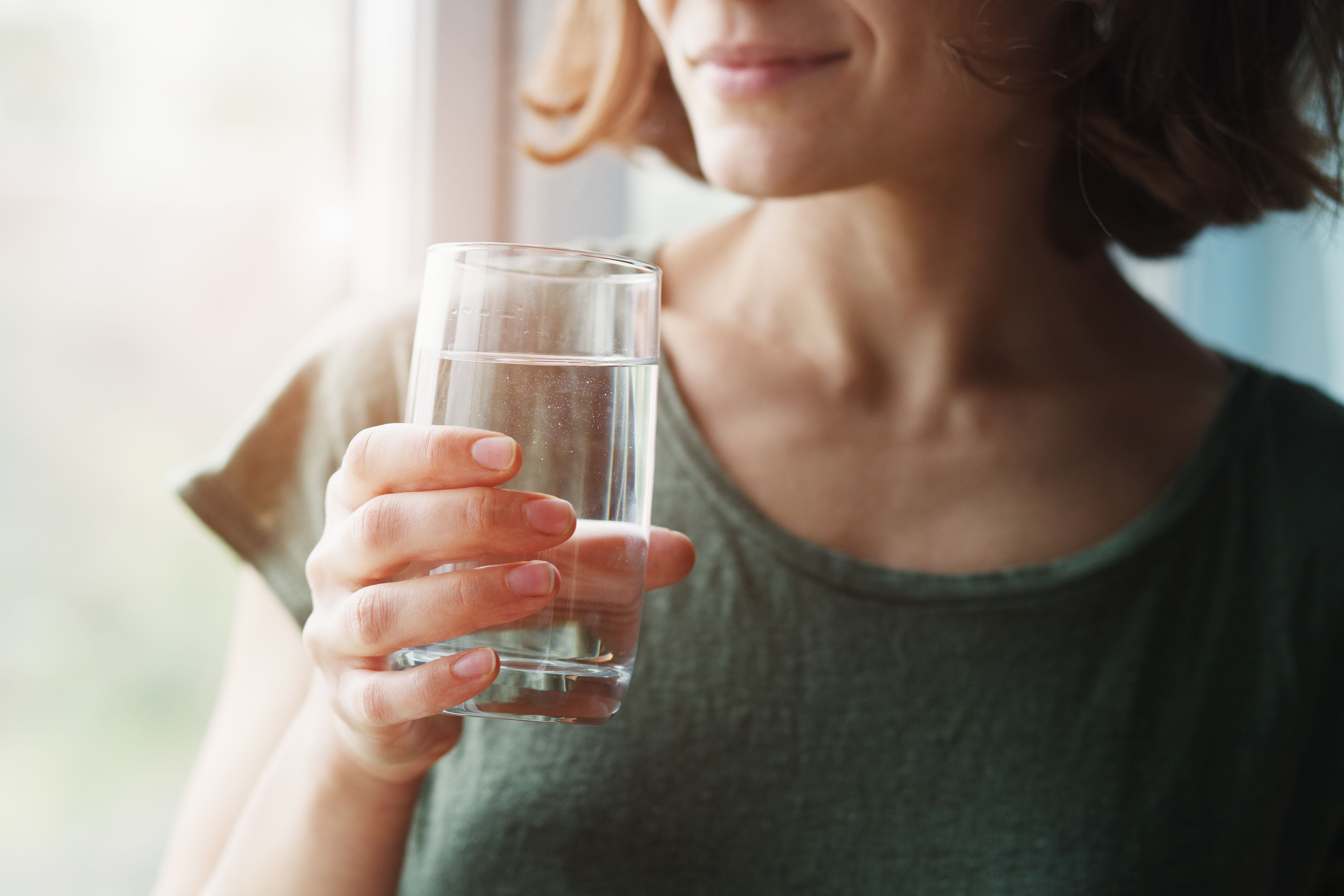
4. When Distilled Water Makes Sense
Distilled water is particularly useful when appliances require mineral-free water to prevent buildup. Common uses include:
- humidifiers
- CPAP machines
- steam irons
- certain aquariums
- cosmetic formulations
For most households, however, producing distilled water at home is slow and energy-intensive, while buying bottled distilled water increases plastic waste.
5. Distilled Water, PFAS and Microplastics
PFAS (“forever chemicals”) have become a widely discussed topic in the UK. Distillation can reduce PFAS, but it isn’t a practical method for daily drinking water because of the time, heat, and energy required.
Reverse osmosis is recognised as one of the most capable household technologies for reducing PFAS, especially when engineered into a high-performance, multi-stage system. This is one reason many homes choose a modern RO-based system when looking for a long-term water solution.
6. Why Many Households Prefer Kitchen Station 1™ Over Distilled Water
If you are weighing distilled water against a home filtration system, the Bluewater Kitchen Station 1™ offers what people seek in pure water — in a more practical way.
- uses advanced SuperiorOsmosis™ purification
- restores essential minerals through Liquid Rock®, creating pure, mineral-balanced water
- provides water instantly, without boiling or waiting
- is designed for everyday use in the kitchen
- reduces reliance on plastic bottles
- offers a refined, world-class water experience at home
Instead of producing distilled water batch-by-batch, Kitchen Station 1™ fits seamlessly under the sink and delivers purified water directly from a dedicated tap.
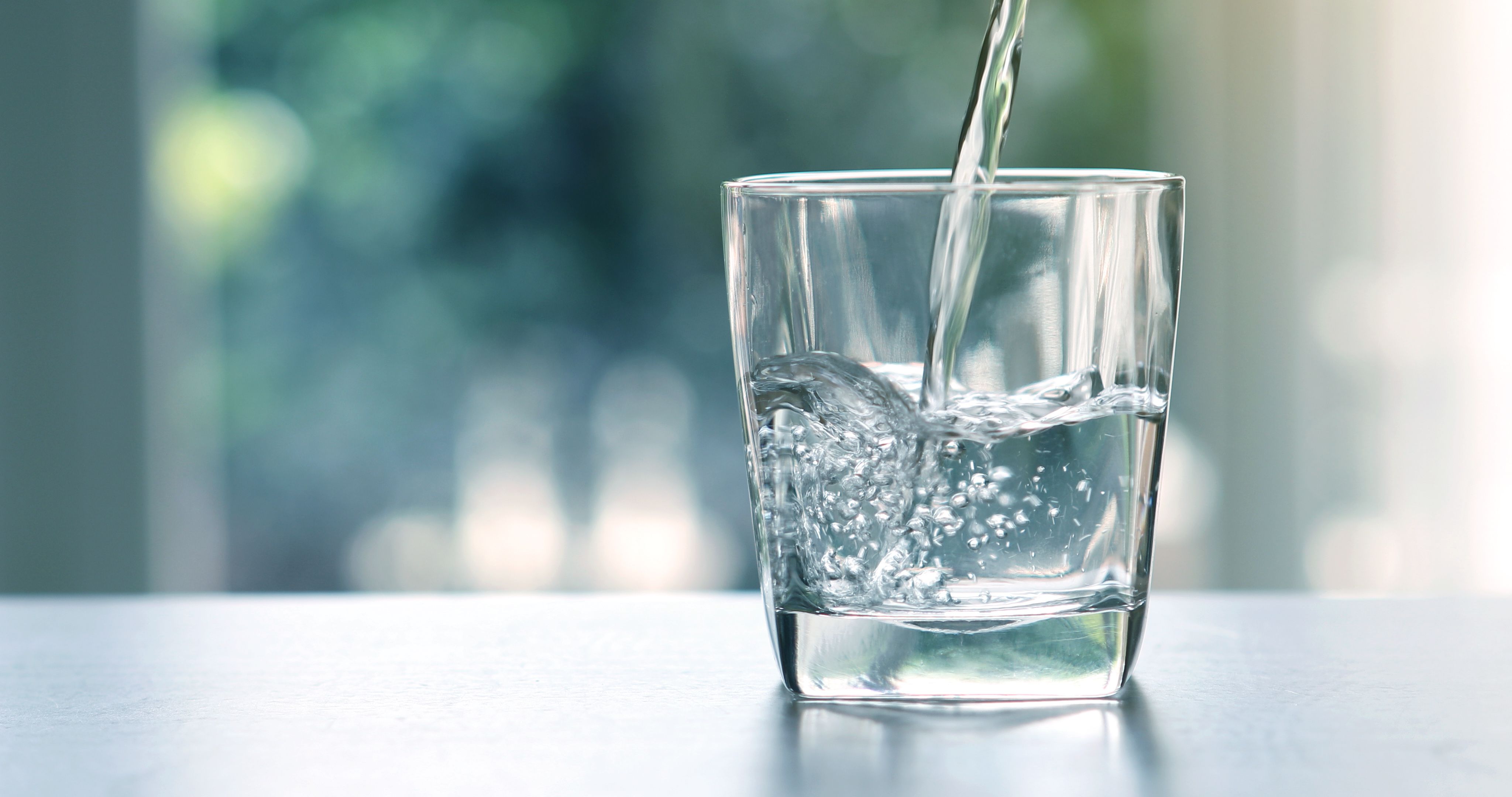
7. Everyday Benefits of Purified Water at Home
Using high-quality purified water daily can enhance:
- the taste of coffee, tea, and cooking
- the performance and lifespan of kitchen appliances
- the overall drinking experience, especially in hard-water areas
Many households also choose a home system to reduce single-use plastics and enjoy the convenience of purified water on demand.
8. Where to Buy Distilled Water
Distilled water is available in supermarkets, pharmacies, and hardware stores for specific household uses.
For drinking water, many people prefer a home purification system — especially one that combines advanced purification with mineral balance for everyday enjoyment.
FAQ: Distilled Water & Home Water Purification
Is distilled water the same as purified water?
Distilled water is one type of purified water. Methods like reverse osmosis purify water without removing every mineral.
Is distilled water safe to drink?
Yes, but it isn’t typically selected as a long-term everyday drinking option.
Does boiling water remove contaminants?
Boiling can reduce bacteria, but it does not remove PFAS, microplastics, or chemical pollutants.
Does reverse osmosis reduce PFAS?
RO is widely recognised as one of the most capable technologies for reducing PFAS in household systems.
Is London tap water safe?
It is regulated, but some households prefer filtered water for taste or additional peace of mind.
What is TDS?
Total Dissolved Solids — a measurement of minerals and other dissolved substances in water.
References
- NHS – Water, Drinks and Hydration
- British Nutrition Foundation – Hydration
- British Dietetic Association – Fluid (Water & Drinks)
- World Health Organization – PFAS Overview
- US Environmental Protection Agency – PFAS
- EFSA – PFAS
- European Environment Agency – PFAS Pollution in European Waters
- ATSDR / CDC – PFAS and Your Health
- Drinking Water Inspectorate (UK) – PFAS Treatment Research
- Lenntech – PFAS Removal by Reverse Osmosis
- Water Research Foundation – PFAS in RO Systems
